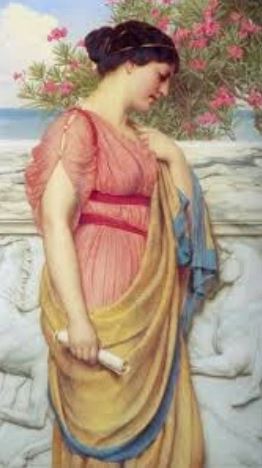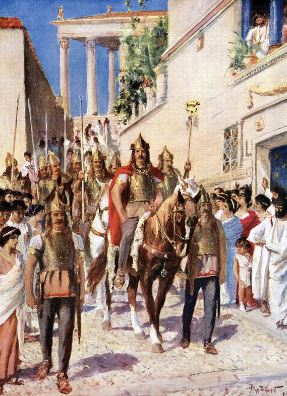Alcmene, a prominent figure in Greek mythology, is best known as the mother of Hercules, one of the most celebrated heroes of ancient Greece. Her story is intertwined with themes of divine intervention, heroism, and the complexities of fate. This article explores Alcmene’s life, her role in Greek mythology, and her enduring legacy.
Early Life and Background
Alcmene was a member of the royal house of Thebes, known for her beauty and noble lineage. Her story is set against the backdrop of Greek mythology’s rich tapestry of gods, heroes, and epic narratives.
- Noble Heritage: Alcmene was the daughter of Electryon, the king of Mycenae, and was thus of royal descent. Her family background placed her within the influential circles of Greek mythological history.
- Marriage to Amphitryon: Alcmene married Amphitryon, a powerful and respected figure in Greek mythology. Their marriage, however, was marked by trials and tribulations, including Amphitryon’s prolonged absence due to war.
The Birth of Hercules
Alcmene’s most significant claim to fame is her role as the mother of Hercules, a demigod renowned for his incredible strength and heroic deeds.
- Divine Conception: According to myth, Alcmene’s union with Amphitryon was complicated by the intervention of Zeus, the king of the gods. Zeus, smitten by Alcmene’s beauty, disguised himself as Amphitryon and fathered a child with her. This divine union led to the conception of Hercules, whose birth was prophesied to bring glory to the gods.
- The Birth of Hercules: Alcmene gave birth to Hercules, who was destined for greatness. Despite being born from a divine father, Hercules’s early life was marked by challenges and trials, including Hera’s jealousy and attempts to thwart his destiny.
Alcmene’s Role in Greek Mythology
Alcmene’s story is significant not only for her role as Hercules’s mother but also for the broader themes it represents in Greek mythology.
- Struggles with Hera: Hera, Zeus’s wife, harbored deep resentment towards Alcmene and her offspring. Hera’s hostility towards Hercules led to numerous trials and challenges throughout the hero’s life. Alcmene’s experiences highlight the complexities of divine influence and human suffering in mythology.
- Symbol of Maternal Strength: Alcmene is often depicted as a symbol of maternal strength and resilience. Her role in nurturing Hercules and enduring the trials imposed by the gods underscores the themes of sacrifice and perseverance in Greek mythological narratives.
Legacy and Cultural Impact
Alcmene’s story has had a lasting impact on literature, art, and culture, reflecting her significance in Greek mythology.
- Literary References: Alcmene appears in various ancient literary works, including plays, poems, and historical accounts. Her story has been interpreted and retold through the ages, contributing to the rich tradition of Greek mythology.
- Artistic Depictions: Alcmene has been depicted in numerous artistic works, from ancient sculptures to Renaissance paintings. These portrayals capture her beauty, strength, and the dramatic elements of her mythological narrative.
- Modern Influence: Alcmene’s legacy continues to influence modern culture and literature. Her story is often referenced in contemporary works that explore themes of heroism, divine intervention, and the complexities of human experience.
Alcmene remains a key figure in Greek mythology, celebrated for her role as the mother of Hercules and her enduring influence on mythological and cultural narratives. Her story reflects themes of divine influence, maternal strength, and the complexities of fate, making her a compelling and significant character in the rich tapestry of Greek mythology.



